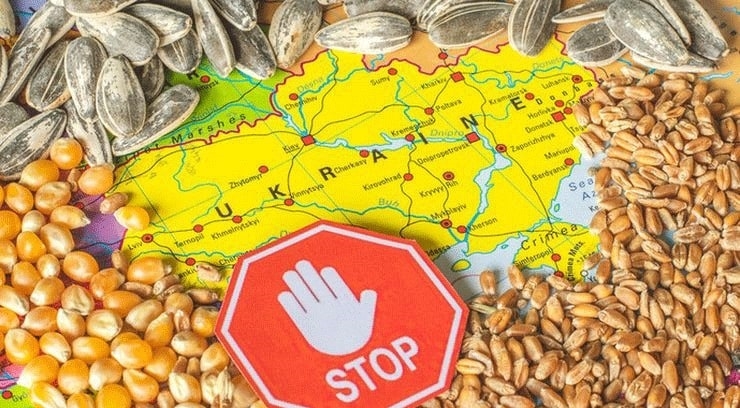The EU plans to extend the ban on wheat, corn, rapeseed and sunflower exports from Ukraine to neighboring countries

Domestic traders hoped that after the extension of the duty-free supply of agricultural products from Ukraine to the EU, the European Union would cancel the ban on the supply of wheat, corn, rapeseed and sunflower to five neighboring countries, however, at a press conference in Brussels on May 25, Executive Vice President of the European Commission Valdis Dombrovskis stated that restrictions on exports from Ukraine will be extended.
"After the adoption of a new package of autonomous trade measures and their extension for another year, we have a legal basis for the continuation of exceptional protective measures against Ukrainian agricultural products, since the current protective measures provided for by the previous autonomous regulatory rules will expire on June 5. Therefore, the European Commission announces its readiness to extend the exclusive trade restrictions for the five countries they concern," V. Dombrovskis said.
He noted that the European Commission will continue discussing this topic with interested countries and Ukraine. If, during the discussion, it is decided to extend the EU's exclusive protection measures against Ukrainian agricultural products after June 5, the parties will also decide on the terms of validity of such restrictions.
At the same time, the executive vice-president of the European Commission thanked the EU countries for the continuation of duty-free delivery of Ukrainian goods to the EU, as such trade measures, which were applied during the year, gave the Ukrainian economy access to the EU market and became a strong basis for the support of Ukraine by the European Union.
Continuation of export restrictions will greatly reduce the profits of Ukrainian farmers, who are already suffering from the blocking of supplies from the Black Sea ports. However, such a decision will look strange against the background of continued imports of agricultural products from the Russian Federation and Belarus into the EU.


